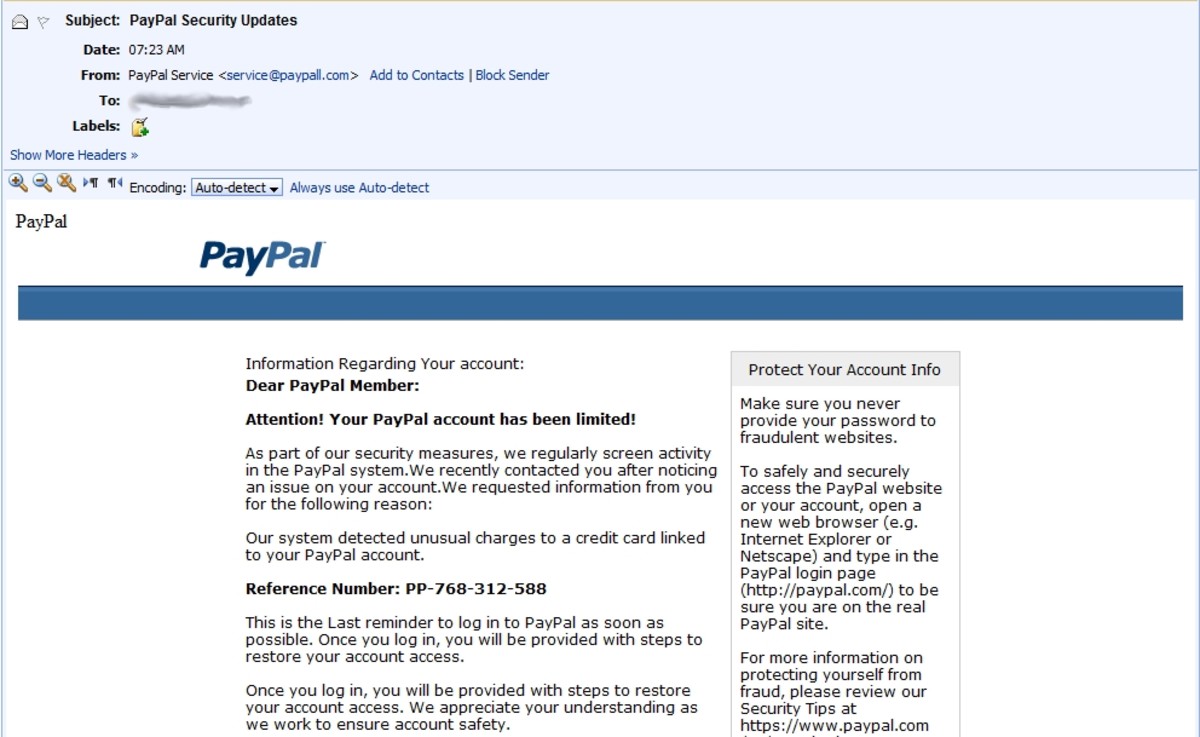Nigerian Letter Fraud Or 419 Fraud. I Received An Email Claiming I Have Money Due, Is It Real?
Nigerian Letter also known as 419 Fraud
The Nigerian Letter Fraud is actually a combination of threats of Fraud. The first is Impersonation fraud, the second is an alteration of an Advance Fee Scheme.
The Fraud starts with a letter which has been mailed from Nigeria, it offers to provide the receiver an opportunity to be paid a portion of millions of dollars in return for the victims cooperation. The letter's supposed author declares themselves a Nigerian Government Official. They make known that they are illegally trying to transfer the money out of Nigeria.
The receiver is inspired to send personal information to the author of the letter. they ask for blank letterhead stationary, along with bank names as well as account numbers and other information that can be used to identify the victim. Then they provide a fax number to have the information faxed too.
Sometimes these letters are received through E-mail on the Internet. This scheme only works if the letter can convince a cooperative victim, who has already shown a tendency to engage in larceny simply by responding to the invitation. Knowing the money is to be illegally moved out of Nigeria, the victim is then encouraged to send money to the letter's author in Nigeria through an installment process with increasing amounts for multiple reasons.

What kind of reasons would the victim send money?
They will use tax payments as a reason to need money, or it could be money to bribe other government officials, various legal fees which are described in grand detail, always with the promise that any expenses spent by the victim will be fully reimbursed as soon as the conspiracy to remove the funds from Nigeria is completed.
The Truth is that the millions of dollars promised never has or will exist, the victim will ultimately end up getting nothing but the loss of their money.
What happens when the victim stops sending money?
When the victim finally becomes frustrated and stops sending money, the culprits have been known to access the victims personal bank accounts and the checks that they have received to steal the victim's identity. This results in all the bank accounts of the victim to be completely drained, it also means that the victims credit cards will also be compromised. The theft will not stop until the victims resources are entirely drained.
Most law-biding citizens will immediately recognize these letters for the deception that they are. Others will lose millions of dollars to these fraudulent schemes every year.
There are some victims that have been enticed to travel to Nigeria, only to find themselves imprisoned against their will, while also losing vast sums of money. The Nigerian Government itself holds no compassion at all for these victims. Especially since the victim was in fact conspiring to illegally remove funds from Nigeria.
The law that is violated is section 419 of the Nigerian Criminal Code, thereby acquiring the term "419 Fraud."
419: the Nigerian Scam
Tips to avoid falling victim to the Nigerian Letter or "419" Fraud
If you do receive a letter from Nigeria asking you to furnish your personal or banking information, Do Not Send A Reply! You can send the letter to the United State's Secret Service (http://www.secretservice.gov/) or your local FBI Office (http://www.fbi.gov/). You could also send it to the United States Postal Inspection Service (https://postalinspectors.uspis.gov/). You also have the option to file a complaint with the Federal Trade Commission’s Consumer Sentinel. (http://www.ftc.gov/sentinel/).
If you become aware of a person who has believed this scam and is communicating with the scammer, embolden the person to contact the FBI or the Secret Service immediately.
If you receive any correspondence from a person claiming that they are a Nigerian or any other Government Official in need of your help to place enormous amounts of money in an overseas account, BE VERY SKEPTICAL!!
Do not believe any promises that are made to provide you a large sum of money in return for your cooperation.
Do everything in your power to protect all your personal information including bank accounts and credit cards.
Summary!
If it sounds too good to be true, it probably is not true. Do not be embarrassed if you have already participated in this fraud. Contact the proper authorities before it goes too far.
This Nigerian Letter Fraud Or 419 Fraud has been occurring for many years, the only way to not fall victim to this fraud is to make sure you never correspond with these people.
Beware of any unsolicited requests either through the mail or via the Internet through E-mails. Caution could be your best friend.
Disclaimer
The materials available on this hub are for informational purposes only and not for the purpose of providing legal advice. You should contact your attorney to obtain advice with respect to any particular issue or problem. All materiel are copyrighted properties of the author and may not be used without permission of the author.
To read more articles by Reality Bytes!








